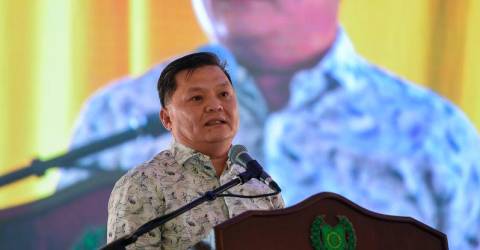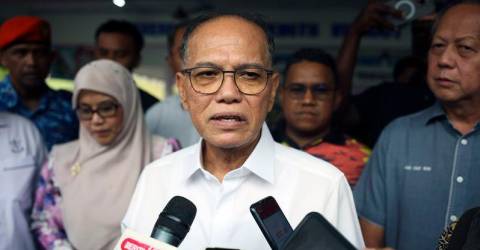ADVERTISE HERE
KUCHING: A former Malaysian diplomat, who was based in Paris, France, has proposed that Sarawak should establish its equivalent of a foreign ministry to handle its diplomatic relations, considering its increasing prominence in international politics.
Syed Nizamuddin Khassim, a native of Kuching, pointed out that through various initiatives such as Sarawak Energy, STATOS, and other agencies, the state has unintentionally engaged in diplomatic endeavours.
Based on his experience as a diplomat, he believes that Sarawak possesses the necessary administrative, legal, and motivational aspects to pursue its foreign affairs, similar to subnational governments like Quebec in Canada, Bavaria in Germany, Flanders in Belgium, and several others around the world.
He emphasised that these subnational governments have established a significant presence in international affairs, and in certain circumstances, their representatives carry more weight than the central government.
Syed Nizamuddin argued that the only distinction between Sarawak and these subnational governments is the absence of a ministry dedicated to coordinating its foreign engagements.
He believes that Sarawak should play a more prominent role in Malaysia’s international diplomacy, given its unique cultural identity and distinct economic pursuits that influence the state government’s decision-making in global affairs.
Although Malaysia has a Ministry of Foreign Affairs at the federal level, Syed Nizamuddin contends that having a ministry at the state level is different. He cites examples such as Canada, Germany, and Belgium, where state or regional governments have their foreign ministries alongside the central government’s ministry.
Regarding the question of whether it is normal for subnational entities to engage in diplomatic activities, he noted that many regions and state governments have pursued para diplomacy or subnational diplomacy to promote their interests abroad.
Furthermore, some of these entities have their representations abroad, including quasi-embassies, despite lacking official diplomatic accreditation.
Syed Nizamuddin acknowledged that Sarawak is already involved in various diplomatic engagements, such as energy exports, commitment to sustainable development goals (SDGs), and trade and tourism promotions worldwide.
However, he believes that a coordinating body is necessary to consolidate these diplomatic efforts.
He suggests that Sarawak should carefully study various paradiplomatic models available if it intends to pursue this path.
He dismissed the notion that engaging in subnational diplomacy would displease central governments, highlighting that the present global order empowers state governments to conduct foreign relations with other entities.
He pointed out that India recognizes the weightage of state governments in international dialogues, and even the French Foreign Ministry has a special unit dedicated to subnational entities’ engagements.
He also mentioned that the United States appointed an ambassador as the Special Representative for Subnational Diplomacy in 2022, as state and regional governments worldwide have increasingly embarked on their diplomatic engagements.
As subnational diplomacy gains global recognition, central governments, including Malaysia, should acknowledge and adapt to this evolving reality. Sarawak’s exploration of subnational diplomacy serves as a catalyst for further research and attention to the role of subnational entities in shaping international relations within the country.

 1 year ago
155
1 year ago
155



 English (US) ·
English (US) ·